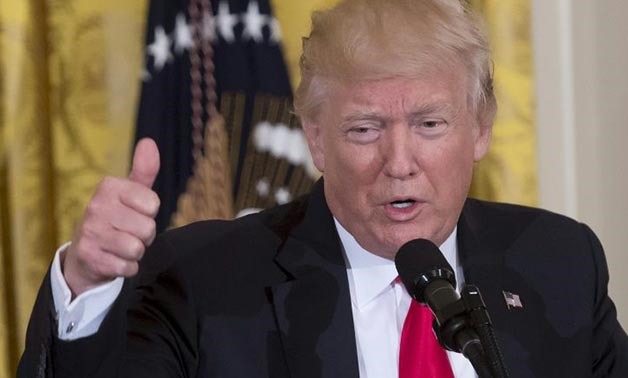
US President Donald Trump - AFP
Washington, June 15, 2017 (AFP) President Donald Trump is set to announce curbs on US firms doing business with the Cuban military and tighter rules on travel to the island Friday, as he moves to roll back an opening initiated by Barack Obama.
Trump will travel on Friday to Miami, where he is set to announce a prohibition on "financial transactions" with military-backed tourism conglomerate GAESA, according to a source close to the deliberations.
The firm -- run by President Raul Castro's son-in-law Luis Rodriguez Lopez-Callejas -- is currently involved in joint ventures with several foreign firms that have driven tourism to the island, including the Marriott hotel chain.
Detailing a new National Security Presidential Memorandum, Trump is also expected to announce stricter enforcement of rules under which Americans can travel to Cuba.
American citizens will still be able to get commercial flights to Cuba, but only under 12 reasons -- from journalism to educational activities -- which will be more strictly enforced.
Cuban-Americans will still be able to travel to Cuba and send remittances, limiting the impact on residents of Florida, where many Cuban emigres settled.
The measures stop well short of upending Obama-era policies, which sought to end decades of isolation that did little to dislodge Fidel and Raul Castro's regime.
There are also expected to be exemptions for agricultural products as well as some air and sea operations.
But it does signal a tougher stance that could slow the number of Americans who have begun to flood into Cuba for Havana city breaks or on weeks-long beach holidays.
That was a key aim of Obama's painstaking effort to restore ties with the communist-run island, which included a landmark visit there in 2016.
Some 285,000 people visited the Caribbean country in 2016, up 74 percent over 2015, with Americans the third biggest group after Canadians and Cuban expats.
"New restrictions on engagement with Cuban economy only pushes Cuba to China and Russia who will gladly make up the difference," said Ben Rhodes, the architect of Obama's Cuba policy.
"Any limitations on travel hurt Cuban small business owners - restaurants, shops, taxis - that depend on travelers for revenue."
Engage Cuba, a group lobbying for an end to the embargo, estimates that 10,000 US jobs in aviation and the cruise business already depend on Cuba.
Even with carve outs, the new policy could pose problems for some US businesses, including hoteliers and airlines who have put on regular flights between the US and the Cuban capital.
In a statement ahead of Trump's announcement, Marriott CEO Arne Sorenson defended the firm's decision to invest in Cuba.
It recently entered a joint venture with GAESA to run the "Four Points by Sheraton" in Havana, investing "significant resources" to establish a foothold.
"We are at an important moment in the relationship between the United States and Cuba," Sorenson said. "Travel between our two countries continues to increase and strengthen an evolving bilateral relationship."
"It would be exceedingly disappointing to see the progress that has been made in the last two years halted and reversed by the administration."
"We have invested significant resources establishing a presence in Cuba, and with one hotel open and another in the pipeline we have just begun our work creating opportunity and a more vibrant tourism sector on the island."
Trump accused Cuba of "cruel despotism" in May, vowing to support its people's hopes for democracy, which raised ironic cheers from rights supporters more used to his cozying up to Saudi Arabia, Turkey and other autocratic states.
But watchdog groups such as Human Rights Watch are skeptical of a return to the terms of the half-century Cold War stand-off, with its total trade embargo and no diplomatic ties.

Comments
Leave a Comment